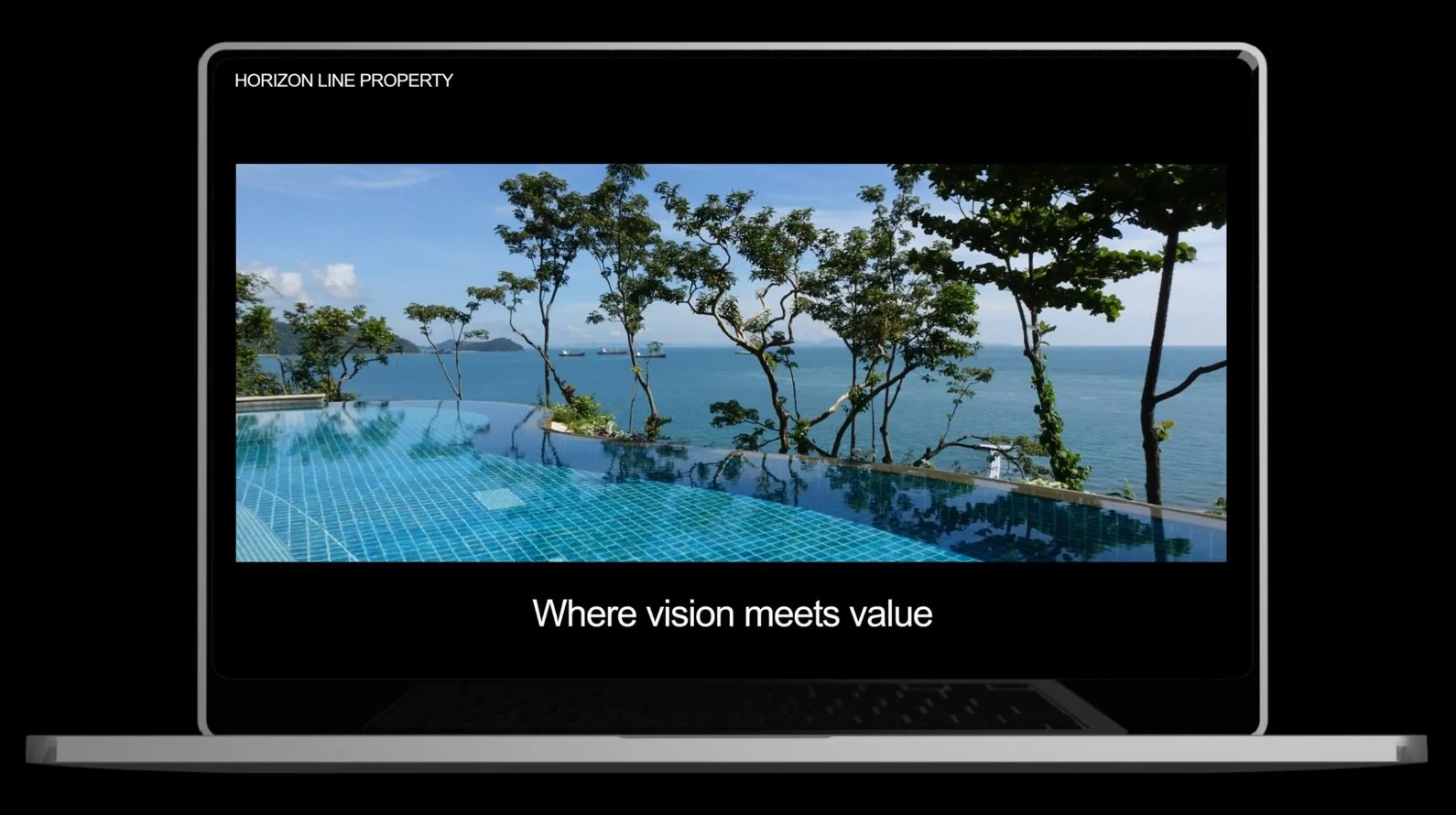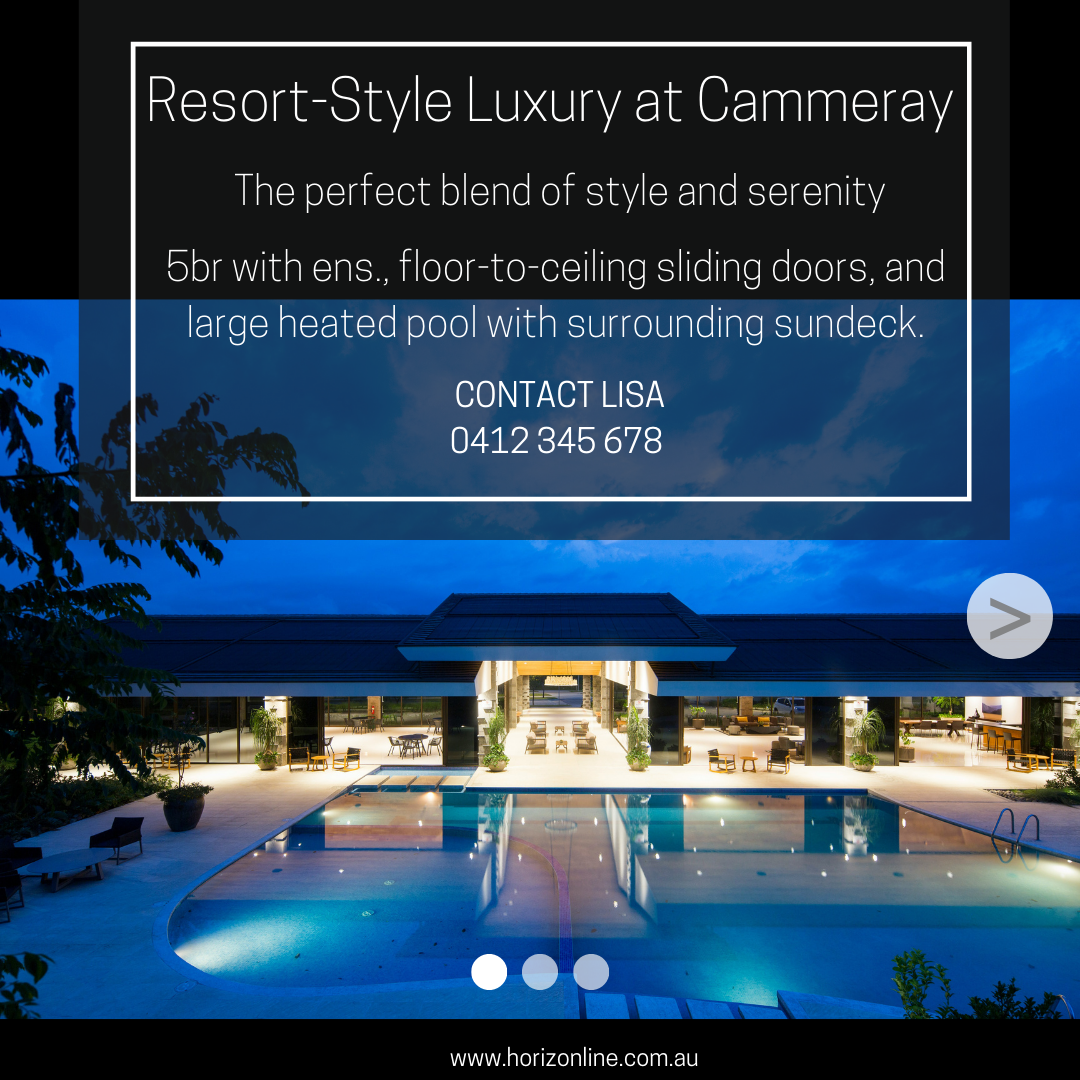
Overview
Client: Boutique luxury property agent
Business structure: Small business
Lifecycle stage: Shakeout
Campaign Budget: $6000
Planning Duration: 1 week
This case study outlines the preparation of a marketing plan for a boutique luxury property agent based in Sydney’s eastern suburbs. The agent had its current website built and marketing program established over four years ago, and is looking to refresh its digital presence with a more modern image while increasing its reach to take advantage of the release of new high-end apartment buildings and renovations in metropolitan Sydney by leveraging its longstanding reputation for achieving the best price for the seller within a reasonable turnover time.
Analysis
79% of residents prefer to tour properties, renew leases, request maintenance, and interact with management using self-service.
Source: McKinsey & Company, 2024.
Market
“Memorable brand experiences, combined with the right data and technology to personalise touchpoints—including generative AI (gen AI) and digital marketing platforms—can stimulate willingness to choose a given property, higher renewal rates, and lifetime loyalty.” - McKinsey & Company, 2024.
Global business management consultancy, McKinsey & Company, has released three key articles since December 2023 that provide insight into real estate marketing today (McKinsey & Company 2023 and 2024, and Wolkomir, 2024). McKinsey & Company (2023) presents seven steps a real estate agency can take to use generative AI to create a competitive advantage, within four categories: improving customer engagement through conversational chatbots to streamline customer service, tools that generate new creative content, prompting for concise insights from unstructured data, big data, and conversations, and producing coding solutions.
Relevantly, in regards to the communication aspects of customer experience, using copilot technology in interactions between the property agent and prospective or existing clients, whether in rentals or sales, can enhance the process and improve outcomes in areas like negotiations, while learning from client communications, and providing coaching to the team to increase quality and reduce risk.
For the physical aspects in areas like property inspections and tours, prospective buyers or renters could not only take a virtual reality tour, but be able to add images of their own furniture and furnishings into the video of the empty property in order to
personalise the virtual environment and gain a more accurate preview of life after moving in, enabling a faster decision. They may instead or in addition choose to add images of furniture that they are thinking of buying from an ecommerce store, and the purchase and delivery of the furniture be arranged to coincide with the move-in.
McKinsey & Company (2024) expands this idea further to describe “tech-enabled brand, CX, and loyalty” (p.1), where a higher level of customer experience (CX) can be provided through powerful brand interactions, thoughtful touchpoints along the customer journey, and reducing operational costs. Examples are provided from hospitality and travel how different companies have deployed gen AI and other AI automation technologies to improve CX, noting that the real estate industry can equally interpret and apply these insights to their own use cases.
Wolkomir (2024) discusses how branding of residential property can enhance customer experience and loyalty, and increase the likelihood of a buyer or renter choosing to purchase or lease a property, and that this follows the trend of offering residents and investors a hotel experience. For example, branded gyms, restaurants or cafes, furnishings, retail, or architecture can enhance the attractiveness of the property in this way. This insight can be used by an agent in not only how they market different properties; also the networks and partnerships they establish with others.
Regardless of how the property agent considers these insights provided through McKinsey & Company (2023 and 2024, and Wolkomir, 2024), returning to McKinsey & Company (2023), the key step is to adopt a data focus, because it is those with the data that will be able to make the most of gen AI capabilities in order to generate insights, tools, and strategies in order to remain competitive. Towards this end, the marketing plan prepared for the property agent in this case study aims to instill the beginnings of this through the marketing function by enabling data visibility, collection, and preparation for its use in advanced analytics when the time comes.
Target Audience
The target market for the property agent are high-net-worth individuals aged 35-65 years old with executive-level or above occupations in finance, management, medicine, and similar industries, primarily located in Sydney and other Australian capital cities, with possible interest from overseas buyers. This consumer group tends to value quality, exclusivity, and high-convenience living, with an interest in lifestyle amenities, such as proximity to cultural hubs, fine dining, and recreational activities. They tend to be environmentally conscious, seeking sustainable and smart home features. On a day-to-day basis these consumers typically engage with luxury brands on social media, prefer personalised experiences with exceptional customer service, and are likely to use digital platforms for property research and virtual tours.
SWOT
Marketing Plan
Social Media Management
In order to put McKinsey’s advice into practice, the agent can use the AI and gen AI features of social media to provide a memorable experience for clients by:
Leveraging AI tools for social media analytics to identify trending topics and find the best times for posting, as well as using gen AI to create engaging posts and responses to customer enquiries in real time.
Implementing AI-powered chatbots on the website and social media platforms like Facebook and Instagram to provide immediate assistance, answer FAQs, and schedule viewings, enhancing customer experience.
Utilise AI sentiment analysis tools to gauge customer feedback from various platforms to refine marketing strategies based on real-time insights.
Use AI to analyse influencer performance and audience alignment, and arrange influencer collaborations, partnering with local influencers in luxury lifestyle and real estate to expand reach and credibility.
Analytics and optimisation using AI analytics tools to monitor engagement metrics, assess content performance, and adjust strategies accordingly. Regularly optimise posting times based on audience activity.
Search Engine Optimisation
Employ AI tools to analyse keyword performance and optimise website content accordingly, and use gen AI for drafting SEO-friendly blog content that attracts organic traffic.
AI-powered tools like SEMrush, Ahrefs, or Moz can identify high-value keywords that match buyer intent, and these tools can be used to analyse user behaviour, search trends, and competition.
Implement AI-based keyword suggestion tools to predict emerging trends and opportunities in the luxury property market.
Google My Business optimisation by ensuring that each office or property listing in capital cities has an optimised GMB profile. AI tools can help monitor GMB reviews and analyse performance for each location.
Search Engine Marketing
Google Ads offers various ad formats, including search ads, display ads, and remarketing options
Bing Ads can capture a unique audience and often has lower cost-per-click rates, hence it’s beneficial for targeting specific demographics.
Facebook Ads allows targeting specific audiences based on interests, behaviours, and demographics, and is useful for visual content and engaging potential buyers with property showcases.
Use stories and carousel ads on Instagram to create an immersive experience
Using search campaigns, display campaigns, and remarketing campaigns.
Email Marketing
The fast-moving real estate industry, with properties being moved in the market so frequently, is a great candidate for email marketing, whether to send out updates, invitations to openings and other events, promotional material, or to offer insights, recommendations, and news on happenings - whatever the purpose, it should be personalised based on insights generated from analytics.
Personalised email marketing: Implement AI-driven segmentation to tailor email content based on user preferences and behaviors. Use gen AI to draft personalised newsletters featuring properties that align with individual interests.
Use list-building strategies like website lead magnets (offering valuable content like market reports in exchange for email sign-ups), social media promotions, open houses, referral programs, and content marketing to encourage sign-ups and referrals.
Using a variety of email campaign types, such as property listings, market insights and newsletters, personalised recommendations, event invitations, and follow-up emails.
Applying a range of segmentation and personalisation methods, like behavioural segmentation, demographic segmentation, personalised content, and dynamic content.
Create automation workflows, including a welcome series, lead nurturing, re-engagement campaigns, and event follow-ups.
Content Marketing
Content can help to establish the agent’s credibility and expertise through considered, well-planned pieces on themes that they have unique experience and training in within the luxury property field, and using their experience to provide insightful information and tips to followers and prospective clients:
Using generative AI to draft high-quality blog posts, property descriptions, and market insights to streamline production and ensure a consistent voice.
Use advanced technology for generating virtual tours, 3D property renderings, and high-quality images that showcase properties effectively.
Create market insights and trends using infographics and videos highlighting market data, created using analytics and data visualisation tools.
Behind-the-scenes content through stories and posts about the team, property staging, or client testimonials, using engaging narratives crafted by genAI.
Weekly interactive content with polls, quizzes, and Q&A sessions hosted via Stories or posts, using AI tools to generate questions and manage responses.
Performance Reporting
Tools
Google Analytics to track website traffic, user behavior, and conversion rates, and to leverage AI-driven insights for predictive analytics.
Google Data Studio to create customisable dashboards and reports that visualise data from multiple sources, including Google Analytics and CRMs.
Hubspot for tracking email marketing performance, lead generation, and customer interactions, and AI features can help optimise campaigns.
SEMrush or Ahrefs to monitor SEO performance, keyword rankings, and backlink profiles, with AI tools to analyse trends and suggest optimisations.
Buffer to track engagement metrics, audience growth, and content performance across social media platforms.
CRM to analyse customer interactions, sales performance, and lead nurturing processes.
Reporting
Comprehensive monthly reports summarising key metrics across all channels (website, email, social media, SEO), including insights on trends, successes, and areas for improvement.
Shorter, higher-level weekly dashboards focusing on immediate performance metrics, such as website traffic, recent email campaign performance, and social media engagement.
Quarterly, in-depth analysis of overall marketing performance, assessing campaign effectiveness, ROI, and strategic adjustments for upcoming quarters.
Dashboard Design
Summary & References
This case study discussed the preparation of a marketing plan for a boutique luxury property agent located in Sydney’s eastern suburbs. With “mountains” (McKinsey & Company, 2023, p.1) of data at hand, real estate agents are in prime position to adopt AI and gen AI, and to participate in AI technology developments over the next decades. With marketing one of the most data-focused functions in a business, it could be a great place to start for those who have been waiting on the sidelines, and for those who have eagerly stepped into the less known it could be the domain they experience the earliest and most powerful benefits.
REFERENCES
McKinsey & Company (2023). McKinsey Quarterly: Generative AI can change real estate, but the industry must change to reap the benefits.
McKinsey & Company (2024). The new real estate investment edge: Tech-enabled brand, CX, and loyalty.
Wolkomir, A. (2024). Re:think - The power of branding and CX in residential real estate.










